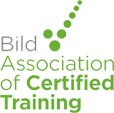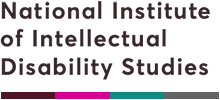Behaviour Support Framework
PETMA© BILD Accreditation
PETMA© is a disability and autism behaviour support framework which complies with HIQA standards and regulations. The PETMA© model is designed for staff in health and social care services who strive to support individuals in an ethical, respectful and person-centred manner. By establishing itself as the first and only Irish behaviour management model to be accredited with the Restraint Reduction Network, as well as being BILD Certified, PETMA© can provide strong reassurances that individuals supported within the PETMA© framework will be confidently, competently and most importantly, respectfully supported.

 PETMA© 2-day Foundation Children and Young People with Disabilities – Request Brochure.
PETMA© 2-day Foundation Children and Young People with Disabilities – Request Brochure.- PETMA© 2-day Foundation Adults with Learning Disabilities – Request Brochure.
- PETMA© 4-day Foundation Children and Adults with Learning Disabilities – Request Brochure.
- PETMA© 4-day Foundation Pupils with Special Needs – Request Brochure.
- PETMA© 4-day Foundation Children and Adults with Autism – Request Brochure.
- PETMA© 1-day Foundation Refresher for Children and Adults with Learning Disabilities – Request Brochure.
| Programme Attributes & Content – Direct taught | PETMA 2-Day |
PETMA 4-Day |
Similar behaviour management models focussing on management of aggression/behaviours of concern |
| Guaranteed Irish |  |
 |
 |
| Based on Irish legislation |  |
 |
Only PMAV |
| Based on HIQA standards and regulation |  |
 |
Only PMAV |
| Creating a safety culture |  |
 |
Not all |
| BILD Accreditation and Restraint Reduction Network Accredited |  |
 |
Not all |
| Staff support |  |
 |
Not all |
| Overview of Positive Behaviour Support |  |
 |
Not all |
| Comprehensive Positive Behaviour Support Strategies |  |
 |
 |
| Includes modules relevant to different service-user groups |  |
 |
Not all |
| Specific to needs of service-users with disabilities |  |
 |
Not all |
| Stressors /Triggers / Linking together /Functions |  |
 |
Not all |
| Interactional Factors |  |
 |
 |
| Psychological and physiological aspects of aggression |  |
 |
Not all |
| Escalation cycle – Rationale for escalation |  |
 |
 - Not always rational - Not always rational |
| Support strategies linked to each stage of escalation cycle |  |
 |
 |
| Intellectual Disability specific supports |  |
 |
Not all |
| Functional Analysis/Functional Assessment/ Preventative Strategies |  |
 |
 |
| Case study Approach |  |
 |
 |
| Staying safe in an escalating environment |  |
 |
 |
| Disengagement Skills |  |
 |
 |
| Physical Holding skills | Need assessed | Need assessed |  |
PETMA© Certificate Instructor Programme – Request Brochure
Course Dates
- January 11th, 12th and 13th
- February 8th, 9th and 10th
- March 8th , 9th , 22nd and 23rd
- April 5th and 6th
Costings
- PETMA© Instructor Certificate Programme from €2,750 per course participant
For more information call Martha McGinn on 045 844 215 or email info@niids.ie
| Programme Attributes & Content – Certificate Instructor Programme | PETMA Certificate Instructor training |
Similar behaviour management Train The Trainer models |
| Guaranteed Irish |  |
 |
| Based on Irish legislation |  |
Only PMAV |
| Based on HIQA standards and regulation |  |
 |
| Creating a safety culture |  |
Not all |
| Staff support |  |
Not all |
| Comprehensive Positive Behaviour Support Strategies |  |
 |
| Includes modules relevant to different service-user groups |  |
Not all |
| Specific to needs of service-users with disabilities |  |
Not all |
| Stressors /Triggers / Linking together /Functions |  |
Not all |
| Interactional Factors |  |
 |
| Psychological and physiological aspects of aggression |  |
Not all |
| Escalation cycle – Rationale for escalation |  |
 - Not always rational - Not always rational |
| Support strategies linked to each stage of escalation cycle |  |
 |
| Intellectual Disability specific supports |  |
Not all |
| Stressors /Triggers / Linking together /Functions |  |
 |
| Case study Approach |  |
 |
| Staying safe in an escalating environment |  |
 |
| Disengagement Skills |  |
 |
| Physical Holding skills | Need assessed |  |
| Certificate Instructor Programme |  |
 |
| CIP NMBI Accreditation |  |
 |
| SCI Endorsement |  |
 |


